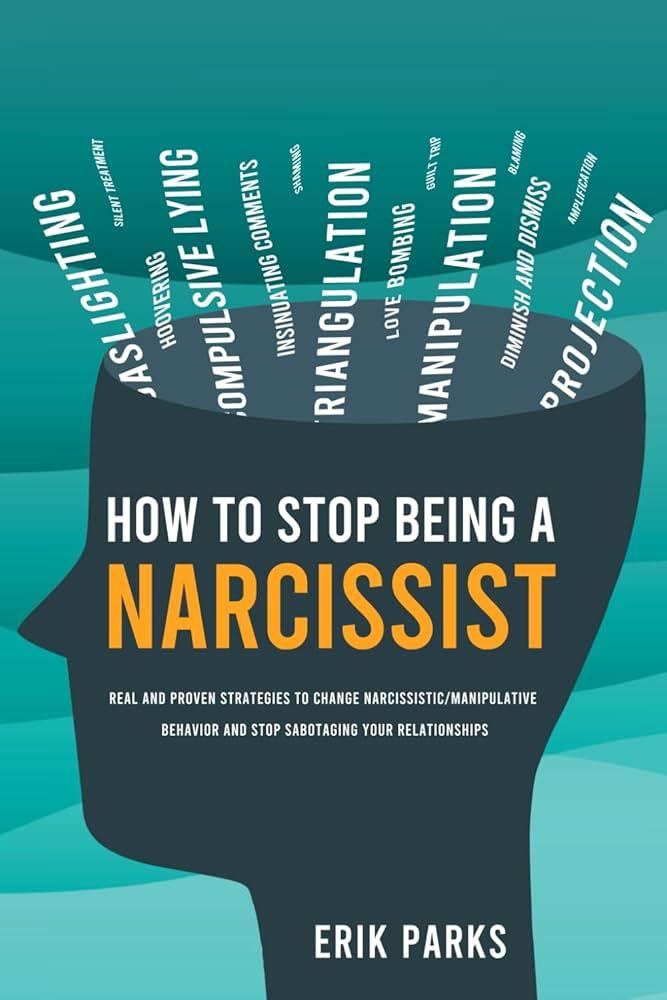Have you ever found yourself tangled in a conversation where, somehow, you end up feeling guilty — even when you’re not really at fault? If so, you might have crossed paths with a narcissist wielding one of their favorite tools: guilt. Narcissists are masters at steering conversations to serve their own needs, and guilt is one of their go-to tactics for control. In this blog post, we’ll dive into why narcissists use guilt to control conversations, how to spot these subtle manipulations, and what you can do to reclaim your voice. Whether you’re dealing with a narcissistic friend, colleague, or family member, understanding this dynamic is the first step toward healthier, more balanced interactions. Let’s unpack this together!
Table of Contents
- Understanding the Role of Guilt in Narcissistic Conversations
- How Narcissists Manipulate Emotions to Keep Control
- Spotting the Subtle Signs of Guilt Tripping in Dialogue
- Practical Tips to Keep Your Cool and Set Boundaries
- To Conclude
Understanding the Role of Guilt in Narcissistic Conversations
Guilt functions as a subtle yet powerful tool in the hands of narcissists, allowing them to steer conversations without overt aggression. They often manipulate emotions by implying that you’re responsible for their feelings or situations, even when the evidence says otherwise. This tactic not only shifts attention away from their own behavior but also puts you on the defensive, making it harder to express your true feelings or concerns. The emotional weight of guilt acts like invisible chains, making you question your stance and often leading you to apologize just to restore peace—something narcissists crave to maintain control.
Behind this lies a carefully crafted playbook of psychological strategies, including:
- Selective empathy: They’ll show concern only when it benefits them, making guilt feel like a personal obligation rather than a mutual understanding.
- Victim playing: Narcissists often position themselves as the wronged party to flip the script and make you feel guilty for disputing them.
- Minimizing your feelings: By brushing off your concerns, they subtly suggest that your emotions aren’t as valid, increasing your susceptibility to guilt.
Recognizing these patterns can empower you to reclaim your voice and set clear boundaries, turning the tide in conversations that once felt like emotional minefields.
How Narcissists Manipulate Emotions to Keep Control
When engaging with a narcissist, you might notice how effortlessly they turn emotions into a weapon for control. They expertly twist feelings of guilt to make you question your own actions and motives, leaving you feeling responsible for their unhappiness or reactions. This tactic is deeply rooted in their need to dominate the conversation and steer the narrative to their favor. By planting seeds of doubt and shame, they keep you off-balance and craving their approval, which slowly erodes your confidence and independence.
Here are some common emotional manipulations narcissists use to maintain control:
- Playing the victim: Shifting blame onto you by portraying themselves as the one wronged.
- Selective memory: Conveniently forgetting promises or facts to make you feel inconsistent.
- Silent treatment: Using withdrawal as punishment to elicit guilt and regain control.
- Gaslighting: Making you doubt your perspective and sanity to dominate the emotional space.
Recognizing these patterns opens the door to reclaiming your emotional autonomy and resisting their manipulative grip. Remember, you are not responsible for their feelings—setting boundaries is the healthiest way to disrupt their control game.
Spotting the Subtle Signs of Guilt Tripping in Dialogue
When navigating conversations with a narcissist, it’s easy to miss the subtle emotional traps they lay. Unlike blatant accusations, guilt tripping often slips in through seemingly innocent remarks that carry a heavy emotional charge. For instance, a simple question like “Do you really think I would do that to you?” can mask an underlying attempt to induce doubt and self-blame. These tactics are not always loud or aggressive; instead, they manifest through tactical pauses, sighs, or even exaggerated expressions of hurt that pressure you into apologizing or justifying yourself unnecessarily.
You might notice a pattern in their dialogue that includes:
- Passive-aggressive comments disguised as concern, such as, “I guess I shouldn’t expect much from you.”
- Selective memory, where they conveniently ‘forget’ your feelings or contributions but bring up yours repeatedly.
- Playing the victim by twisting your words or actions to make themselves the wronged party.
Recognizing these subtle tactics is the first step in reclaiming control over the conversation and setting healthy boundaries.
Practical Tips to Keep Your Cool and Set Boundaries
Learning to maintain your composure when dealing with guilt-tripping tactics is essential for healthy interactions. Start by recognizing your emotional triggers—understanding what phrases or behaviors unsettle you allows for a proactive response rather than a reactive one. When you feel guilt creeping in, pause and take a deep breath before responding. This simple act helps ground your emotions and creates space to choose your words carefully. Remember, your feelings are valid, and you don’t have to internalize another person’s attempts to manipulate you.
Setting clear, respectful boundaries is the cornerstone of protecting your mental space. Use assertive language such as:
- “I appreciate your perspective, but I need to focus on my feelings right now.”
- “I’m not comfortable discussing this further if it makes me feel guilty.”
- “Let’s talk when we can both communicate calmly.”
These statements convey your limits without aggression and remind the other person that emotional manipulation won’t steer the conversation. Practice consistency—reinforce your boundaries every time they’re tested, as this empowers you and discourages repeat offenses.
To Conclude
Understanding why narcissists use guilt to control conversations is a crucial step toward protecting your emotional well-being. By recognizing these patterns, you can set healthier boundaries and reclaim your voice in any dialogue. Remember, it’s not about winning the conversation—it’s about preserving your peace. Stay aware, stay kind to yourself, and don’t let guilt be the puppet master of your interactions. Thanks for reading, and here’s to healthier, more balanced conversations ahead!

